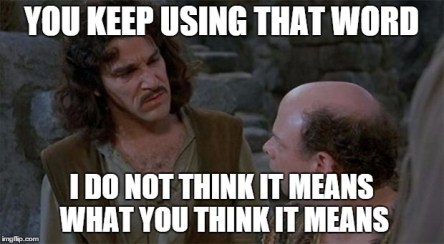So, we recently had tenant applicants do some things that were new to us. One walked out of the lease-up, and the other called us rude. Let me explain what happened and why each instance was actually good.
The first one happened on a Tuesday. We’d been trying to find the right tenant for a vacancy we have up in Dalton. We found some people who looked great on paper, and we scheduled the in-home interview.
There, we met the family and got to see how they kept their house. As I interviewed them, I began to train them on the four jobs of a tenant which are as follows:
No.1: Take care of, maintain and improve the property. No.2: Pay on time. No.3: Be easy to work with by maintaining good communication and being respectful. No.4: Be a good neighbor.

After the interview, I reported back to our office that I believed they would be a good fit for the house, and we set a time to do the lease-up.
During the lease-up, we sit down and go through the entire lease with the new tenants before they sign. This is a technique I learned from David Tilney in his course called Hassle Free Property Management.
The main purpose of the lease-up is to train your new tenants on what kinds of things you expect and how you’re going to hold them accountable.
Typically, as we go through the lease, we tell stories and give detailed examples of how the lease defines the fours jobs of the tenant. We talk about how we expect tenants to do minor repairs around the house. We go over the reasons we use direct deposit for rent payment versus allowing tenants to mail us checks. We also show how we expect them to be easy to work with. We even talk about how to be a good neighbor, which includes refraining from playing loud music and things of that nature.

As we were getting to the end of the lease-up for the Dalton property, I could tell the body language of the husband had changed. He and his wife stepped outside to talk for a few minutes, and when they returned, they told us they decided they didn’t want to rent the house.
We have never had that happen before.
After a few questions, it became abundantly clear that they felt very uneasy about being held accountable by their landlord.
So on to the next incident. We are getting a ton of incomplete applications right now, which is our very first disqualifier. As stated on the application, if it is not filled out entirely, the application is discarded.
We had a young man send us an application incomplete three times in a row. On the third attempt, he got irate and his entitlement mentality emerged. When this happened, I calmly explained to him the four jobs of a tenant. When I got to job No.3, I explained that I didn’t think he was going to be easy to work with and that we should just part ways as friends now. At this point he exclaimed, “You don’t have to be so (expletive deleted) rude.”

Dropping the F-bomb, and ironically calling me rude, was the signal I needed to terminate the phone call.
Think about what just happened here. Someone who was not going to be easy to work with weeded himself out of the tenant pool before we spent much effort on his application. Could you imagine the headaches we would have had if we had just taken his money and signed him up?
In these situations, both would-be-tenants disqualified themselves. And neither would have been easy to work with.
One of the things David Tilney says is that being a landlord is one of the few occupations in which you get to choose who you do business with. Make sure you put policies and procedures in place that help you choose tenants wisely.
Joe and Ashley English buy houses and mobile homes in Northwest Georgia. For more information or to ask a question, go to www.cashflowwithjoe.com or call Joe at 678-986-6813.
